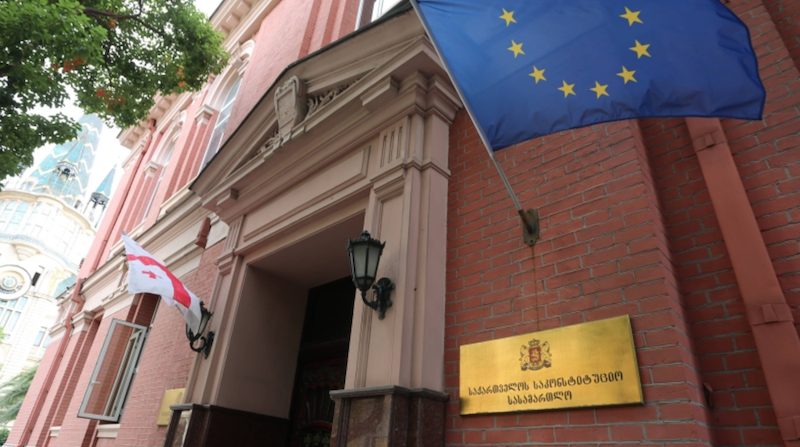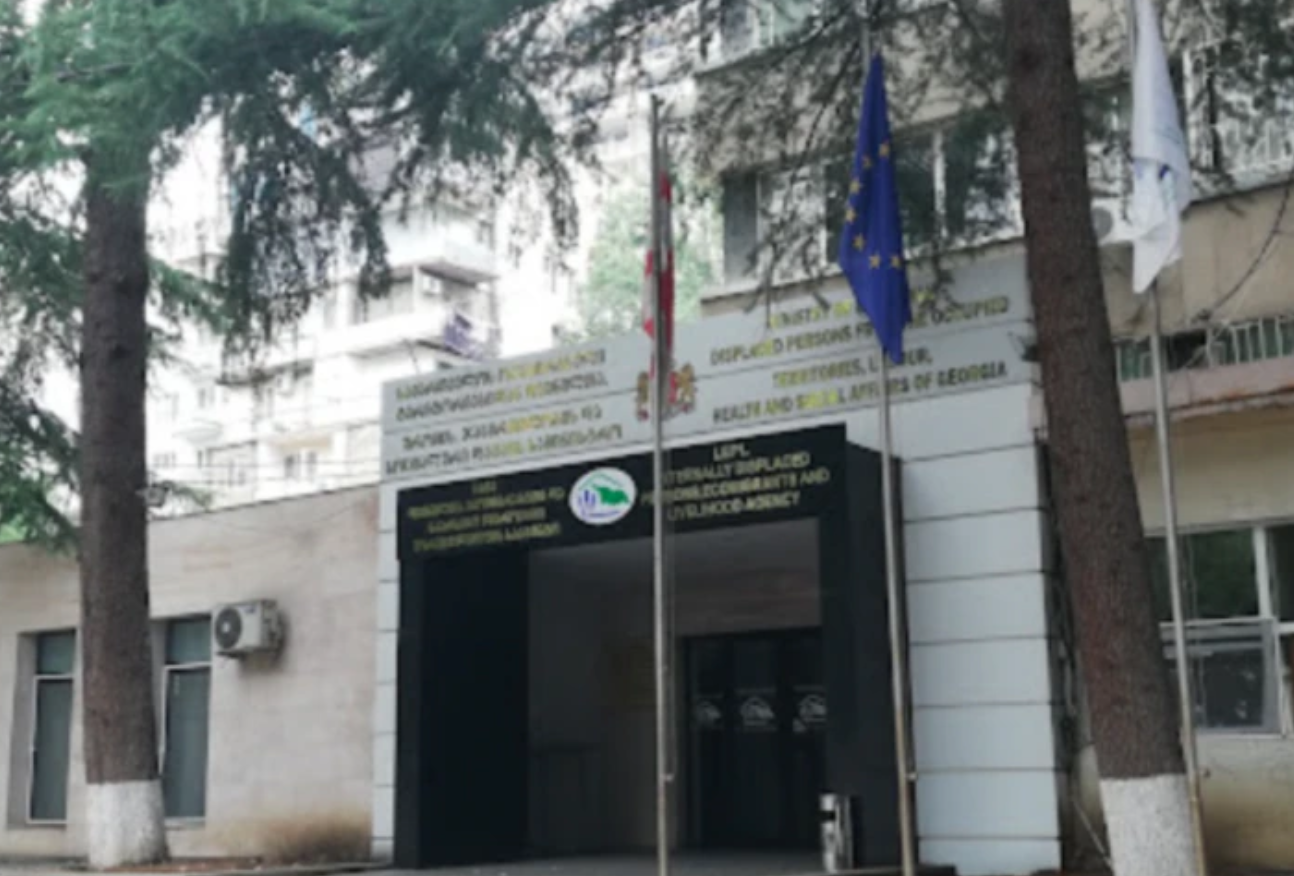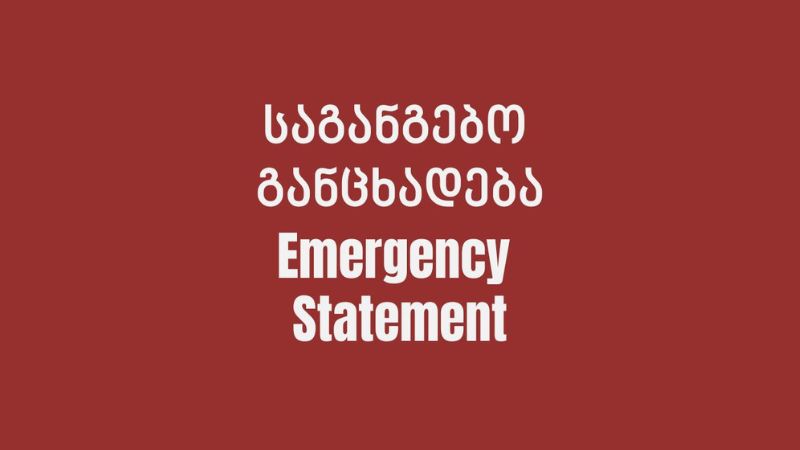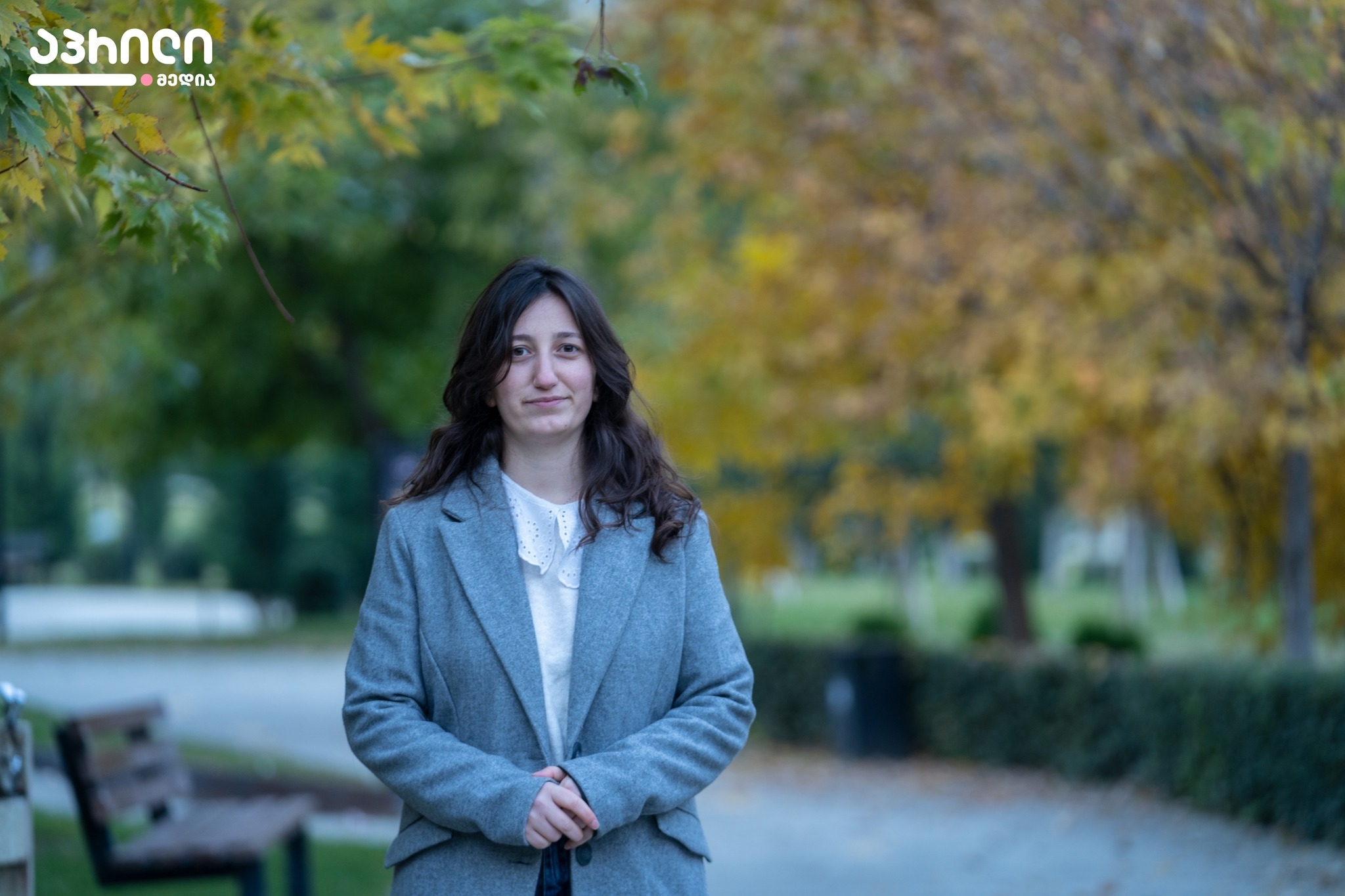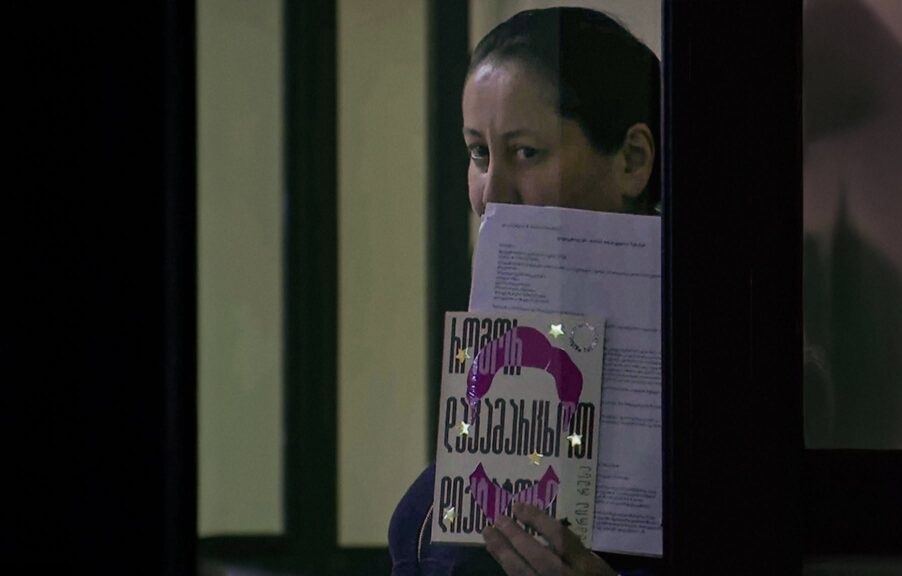On October 9, the Constitutional Court of Georgia issued a decision stating: “The plaintiff’s motion to suspend the disputed norms until a final decision is made on the case is not satisfied,” thereby keeping in force the law “On Transparency of Foreign Influence,” widely known in the public as the “Russian Law.” Of the 8-member plenum, two judges, Giorgi Kverenchkhiladze and Teimuraz Tugushi, registered dissenting opinions.
The decision addresses the plaintiffs’ request to suspend the law’s operation until a final ruling, citing its chilling effect that restricts the full realization of freedom of expression for Georgian civil society organizations and media (paragraph 18). The plaintiffs argue that the Russian law entirely contradicts the obligation defined by Article 78 of the Georgian Constitution – “to take all measures to ensure Georgia’s full integration into the European Union and the North Atlantic Treaty Organization.” (paragraph 43).
The plaintiffs also point to the dignity-damaging connotation of the term “organization pursuing the interests of a foreign power,” and the risks arising from the disclosure of critically sensitive personal information and the imposition of a heavy administrative burden.
The Constitutional Court believes that the plaintiffs failed to substantiate the risk of “irreversible damage,” and therefore does not suspend the law’s operation until the final decision:
“The court is of the opinion that in this case, the plaintiff fails to prove the irreversibly irreparable nature of the damage inflicted on them, and therefore, there is insufficient basis to satisfy their motion” (paragraph 58).
Four lawsuits have been filed against the Russian law in the Constitutional Court: by the President of Georgia, 38 members of the Georgian Parliament, 122 non-governmental organizations, LLC “Network of Information Centers” and the investigative journalism organization “Studio Monitor.” The Constitutional Court considered all four lawsuits in a unified session.
The President of Georgia vetoed the Russian law on May 18 and stated at a briefing: “Today I vetoed the Russian law. This law is inherently, in its spirit, a Russian law that contradicts our constitution and all European standards, thus representing an obstacle on our European path. This veto is fully legally justified and will be submitted to the parliament today. This law is not subject to amendment, no improvement, and therefore, it is a very simple veto, this law must be abolished.” However, on May 28, the Georgian Parliament overrode the veto with the support of 84 deputies and finally passed the law.
On May 21 of this year, the Venice Commission published an opinion on the Russian law, indicating that the law was adopted without the possibility of in-depth discussion and consultation, against the concerns expressed by a large part of the Georgian people (paragraph 95). The Venice Commission also points out that the law is incompatible with the rights to freedom of expression, assembly and manifestation, and privacy, and violates the principle of equality of citizens in the context of Article 14 of the European Convention on Human Rights (paragraph 96).
